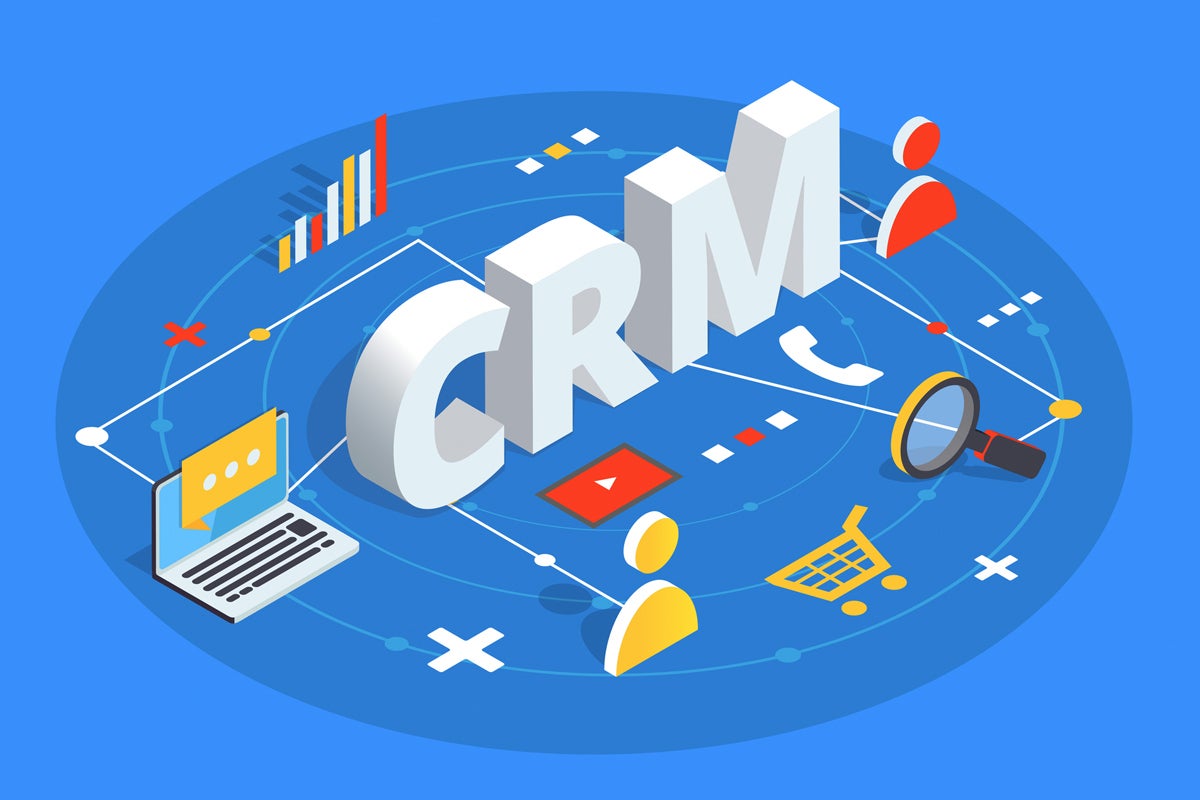CRM software is a tool used by businesses to manage customer relationships, streamline sales processes, and enhance overall customer satisfaction. It helps organizations track interactions, analyze data, and generate reports to drive informed decision-making.
With CRM software, businesses can automate marketing campaigns, monitor customer support activities, and improve customer retention rates. It is an essential tool for businesses to effectively manage their customer base, increase sales productivity, and foster long-term customer relationships. Whether small or large, businesses across various industries can benefit from implementing a CRM software to streamline their operations and enhance customer interactions.
What Is A CRM Software?
CRM software is a tool that helps businesses manage customer relationships and streamline sales processes.
Customer Relationship Management (CRM) software is a technology solution designed to help businesses and organizations manage their interactions and relationships with customers and potential customers.
It serves as a central hub for collecting, storing, and analyzing customer data and communication history, enabling businesses to improve their customer engagement, streamline sales and marketing processes, and enhance overall customer satisfaction.
Most Popular CRM Software Examples
Customer Relationship Management (CRM) software has become an indispensable tool for businesses of all sizes. These platforms help organizations manage customer interactions, streamline sales processes, and enhance customer service. In this article, we’ll explore some of the leading CRM software options available, each with its unique features and benefits.
Salesforce: The Global Leader
Salesforce is often hailed as the gold standard in CRM software. It is trusted by thousands of businesses worldwide, from startups to multinational corporations. Salesforce offers a wide range of features, including contact and lead management, opportunity tracking, email automation, and analytics. What sets Salesforce apart is its scalability and customizability, making it suitable for businesses in diverse industries.
HubSpot CRM: Simplicity and Integration
HubSpot provides a user-friendly CRM solution that seamlessly integrates with its marketing and sales automation tools. The HubSpot CRM offers contact management, lead tracking, and email marketing capabilities. Its simplicity and the fact that it offers a free version make it an excellent choice for small businesses and startups.
Zoho CRM: Affordable and Flexible
Zoho CRM is known for its affordability and flexibility. It includes features like lead and contact management, workflow automation, and analytics. Zoho’s CRM can be tailored to suit the specific needs of your business and is a great option for small and medium-sized enterprises.
Microsoft Dynamics 365: The Microsoft Ecosystem
Microsoft Dynamics 365 integrates seamlessly with other Microsoft products like Office 365 and Azure. It offers modules for sales, customer service, marketing, and field service. If your organization already relies heavily on Microsoft tools, this CRM can provide a cohesive solution.
Pipedrive: Sales-Focused Simplicity
Pipedrive is a sales-centric CRM that simplifies lead and deal management. Its visual pipeline management makes it easy for sales teams to track progress and identify bottlenecks. Pipedrive’s simplicity and focus on sales processes make it a top choice for sales-oriented organizations.
Freshsales: Sales Automation and Email Tracking
Freshsales, by Freshworks, is designed to automate sales tasks and track email interactions. It includes lead scoring, contact management, and analytics. Freshsales is an excellent fit for small and medium-sized businesses looking to enhance their sales processes.
Bitrix24: CRM and Collaboration Combined
Bitrix24 combines CRM with project management, team collaboration, and communication tools. It’s a versatile platform suitable for small to medium-sized businesses. With Bitrix24, you can manage both customer relationships and internal teamwork efficiently.
Insightly: CRM and Project Management
Insightly is a CRM platform with a strong focus on project management. It offers features for contact management, sales, and project tracking. This combination makes it ideal for businesses that want to integrate their CRM and project management processes.
Choosing the right CRM software is a critical decision for any business. The choice should align with your organization’s specific needs, budget, and long-term goals. These CRM software options represent a range of features and price points, ensuring that there’s a solution suitable for every type of business. Evaluate these options carefully to find the CRM software that best fits your requirements and sets you on the path to improved customer relationships and increased productivity.
How CRM Software Can Transform Your Business
CRM software has the power to completely revolutionize your business operations. By streamlining your workflow, you can eliminate inefficiencies and improve productivity. One of the key benefits is the ability to centralize customer data, making it easily accessible for your team.
This eliminates the need for manual data entry and allows for a more comprehensive view of your customers. Additionally, CRM software can automate repetitive tasks, freeing up your time and resources. With automation, you can focus on building relationships with customers and growing your business.
Overall, implementing CRM software is a strategic move that can greatly impact your bottom line and propel your business to new heights.
Boost Productivity With Real-Time Data Insights
Boost your productivity by utilizing CRM software to gain real-time data insights. Analyze customer trends and patterns, identifying sales opportunities to maximize revenue. With accurate and up-to-date information at your fingertips, you can make data-driven decisions that lead to business success.
Stay ahead of the competition by capitalizing on the power of CRM software, which enables you to track customer behavior, preferences, and interactions seamlessly. This invaluable resource empowers you to understand your audience better and tailor your strategies accordingly. By harnessing the potential of CRM software, you can unlock a treasure trove of actionable insights that inform your sales and marketing efforts.
Embrace the future of digital transformation and leverage CRM software to elevate your business to new heights. Experience the advantage of real-time data and propel your productivity to unprecedented levels.
Enhance Collaboration And Communication
CRM software provides an example of how collaboration and communication can be enhanced in a business setting. By utilizing this software, teams can improve their coordination by facilitating seamless communication. This tool allows for efficient tracking of progress and the efficient assignment of tasks.
With the help of CRM software, teams can avoid miscommunication and streamline their operations. It enables them to stay updated on ongoing projects and ensures that each member is aware of their responsibilities. By combining various features like real-time messaging, task management, and file sharing, CRM software promotes effective teamwork and eliminates the need for lengthy email chains or constant meetings.
In summary, implementing a CRM software solution can greatly enhance collaboration and communication within a team, ultimately leading to increased productivity and success.
Frequently Asked Questions Of CRM Software Example
What Is An Example Of A CRM Software?
Salesforce is an example of a CRM software used for managing customer relationships.
What Is A CRM Software?
A CRM software is a tool that helps businesses manage and analyze customer interactions and data efficiently.
Is Excel A CRM Tool?
No, Excel is not a CRM tool.
What Are The 3 Types Of CRM?
The three types of CRM are operational CRM, analytical CRM, and collaborative CRM.
Conclusion
CRM software has undoubtedly revolutionized the way businesses manage their customer relationships. With its wide range of features and functionalities, it streamlines processes, enhances communication, and improves overall efficiency. From small startups to large corporations, organizations of all sizes can benefit from implementing CRM software.
One of the key advantages of CRM software is its ability to centralize customer data, making it easily accessible and eliminating the need for scattered data across various platforms. This centralized data helps businesses gain a comprehensive understanding of their customers, enabling them to provide personalized experiences and build long-lasting relationships.
Furthermore, CRM software enables effective sales and marketing automation, simplifying lead generation, nurturing, and conversion. It also facilitates better customer support and service through features like ticketing systems and customer portals, enhancing customer satisfaction and loyalty. Choosing the right CRM software example that aligns with your business needs is crucial.
Conduct thorough research, consider your specific requirements, and evaluate the software’s features, scalability, and ease of use. By leveraging CRM software effectively, businesses can optimize their customer relationships and drive growth in today’s competitive landscape.




